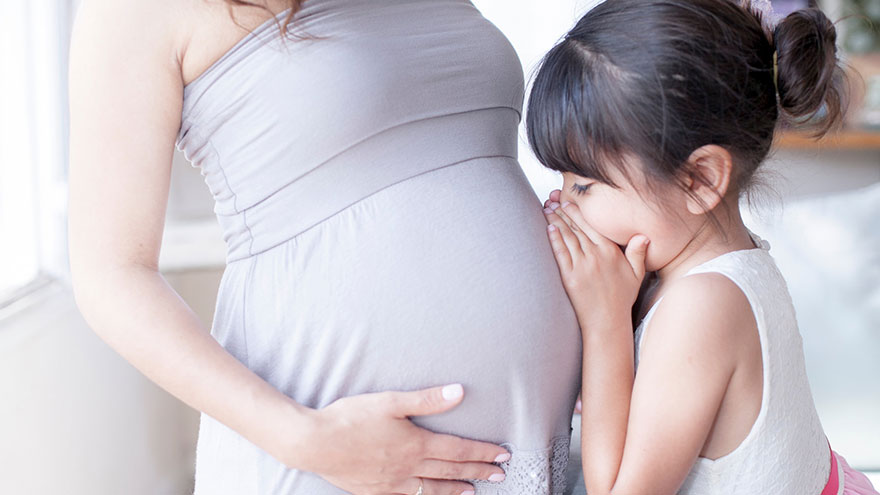How to Talk to Kids About Pregnancy
Pregnancy is an exciting time for a family, and it’s also an event that is likely going to bring out your child’s curious side. Even a well-adjusted child will have trepidation about changes in the family, and children who seem uninterested in a pregnancy at first might have a plethora of questions for you once your belly starts to look like a beach ball.
Fortunately, you can use your child’s temperament and inquisitiveness as a guide for figuring out just how much information you should be sharing.
Things You’ll Need
- Pregnancy, birth and sibling storybooks
- Infancy photo albums
7 Steps to Talk to Kids About Pregnancy

1. Tell your child about your pregnancy early.
It’s OK to delay spreading the news a little — once your child knows about your pregnancy, it’s safe to assume that everyone else will soon know, too. Early in the second trimester, once the baby bump begins to show, is an ideal time to share the news with a young child. Sharing the news later might not give your child enough time to adjust to the impending changes and feel reassured by you that your love for her will not change. Sharing the news too early might make it difficult for her at first to understand the concept of pregnancy because your body still looks the same.
2. Elicit a little information from your child when you talk about your pregnancy.
When you tell her that you’re pregnant, ask her what she knows about pregnancy — does she know where babies come from? Does she understand your baby bump means there’s a baby inside your womb? Finding out what she knows will let you know how to approach the subject. If she’s full of questions, it’s safe to assume she’s rather curious about the subject. If she doesn’t seem interested in the subject, providing too much information might just confuse or upset her.
3. Explain the physiological facts of pregnancy in a straightforward, yet child-friendly manner.
When discussing some of the negative aspects of pregnancy, such as morning sickness and fatigue, explain how you also experienced these during your pregnancy with her.
4. Read your child storybooks about pregnancy, the birth of a baby and new siblings.
If you are uncomfortable talking about the physical facts of pregnancy, use age-appropriate storybooks to explain the details.
5. Show your child photos of you when you were previously pregnant.
Show your child her baby photos. Talk about what you experienced when you were pregnant, what she was like during infancy and the things she needed from you. This helps her understand what to expect from a new sibling. Be honest about what newborns are like so there are no misconceptions about what will happen after the baby is born. Explain that babies cry often and require a lot of things, such as diaper changes, feedings and baths, and tell your child the important things she can help out with when the baby arrives.
6. Involve your child in the pregnancy.
Not only will this help to make the pregnancy more concrete for your child, it will help to prepare her to meet her new sibling. As your belly grows, let her feel the new baby kicking, encourage her to sing songs to the baby, and let her help decorate the new baby’s room.
7. Understand that your child will have probably have more questions as your pregnancy progresses.
After your baby bump begins to grow and you start decorating the nursery, your pregnancy might become more real to your child. Make sure your child knows you are available for future questions.
You Might Also Like :: How to Do the Pencil Test to Find Out the Sex of a Baby

